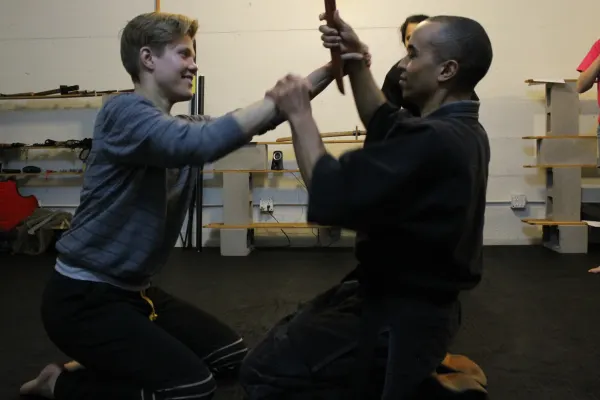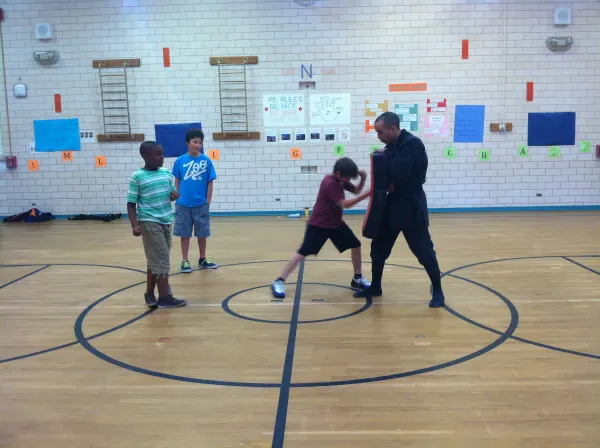Yokai Gumi
About
The approach of the Yokai Gumi differs from other martial arts schools in that we neither teach for competition nor do we advocate a good guy versus bad guy survivalist mentality. We promote an acceptance of pain and death. We emphasize the importance of maintaining integrity and intentionality in conflict and difficulty.
When a class goes well, students leave more capable of living with intention and taking care of those less capable and less fortunate than themselves. Being a part of this process is a great privilege.
Highlights
Specialties
Student's age
Disciplines interested in
Experience level
Goals
Class type
Number of students
Photos and videos






Reviews
ElizaBeth M W.
Eli W.
Jasmine Z.
Muriah S.
Ona
Gregory H.
Frequently asked questions
What is your typical process for working with a new student?
New students are asked about their goals, whether they are in any immediate danger, and about any medical limitations which could affect training. Following this, students spend a couple weeks learning the first dozen basic techniques, as well as working in with the general class on whatever those students are working on. The first dozen techniques represent the full range of difficulty — by variety — that a student will experience in the course of training. Usually, a student will encounter a serious personal aversion to one or more of them. It is how that student deals with that difficulty that helps them come to an understanding of whether or not this training is a good fit for them.
What education and/or training do you have that relates to your work?
I am a menkyo kai practitioner of the art, with over twenty-five years of practice supporting my instruction.
Do you have a standard pricing system for your lessons? If so, please share the details here.
No one is turned away. In general, though, students pay about $50/mo. or $10 drop-in for classes. For occupational practitioners and organizations seeking specialized training, pricing starts at $75/hr. and is negotiable.
How did you get started teaching?
Instructors in this, and most classical disciplines — I find, are practitioners who are eventually asked to teach. I was asked to teach by several individuals and groups and eventually opened a school.
What types of students have you worked with?
I have worked with children and adults, hobbyists and professionals, and complete beginners and experts. I especially enjoy working with those who have a specific ambition which they are serving. It's also really nice to work with skaters, dancers, and athletes — who come with transferable skills to build on top of.
What advice would you give a student looking to hire a teacher in your area of expertise?
Know what you are looking for and why. Then hold your motivations and assumptions to a little bit of scrutiny. Many people considering martial arts training come with false notions that one style or another is better, that there's some kind of a hierarchy of martial arts — when the truth is that people get out of styles what they put in.
Look for a school that you believe you can build relationship with, a place that resonates with your personality. You can get good any place where people are honest and where you're encouraged to be honest with yourself.
What questions should students think through before talking to teachers about their needs?
Are you in danger? Ask that question in earnest. I've had students who showed up to class after an incident that made them uncomfortable that they wanted to do something about — but not much. On closer investigation they were being stalked by a violent predator, or were tolerating a life situation which could have easily resulted in their death. Come to clarity about what prompted this search for you. With luck, you're looking for personal development and community. Just make sure you know.